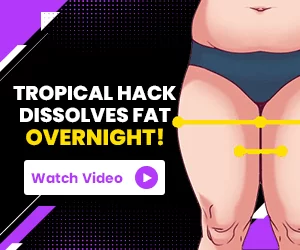Understanding the Difference Between Fat-Loss and Weight-loss
When it comes to weight loss, there are two main goals that people typically strive for: fat-loss or weight-loss. While these terms may seem interchangeable at first glance, they actually refer to different things.

Fat-loss refers specifically to losing body fat while retaining lean muscle mass. This is important because having too much body fat can increase your risk of developing health problems such as heart disease, diabetes, and high blood pressure. On the other hand, weight-loss simply means reducing overall body weight, which could include both fat and lean muscle tissue.
The Role of Diet in Achieving Your Goals
Diet plays a crucial role in achieving either fat-loss or weight-loss goals. A well-balanced diet that includes plenty of fruits, vegetables, whole grains, lean protein sources, and healthy fats is essential for maintaining good health and supporting weight management efforts. However, when it comes to specific strategies for promoting fat-loss versus weight-loss, the approach may differ slightly. For example, a higher proportion of calories from protein compared to carbohydrates may be more effective for preserving lean muscle mass during periods of calorie restriction. Additionally, incorporating regular exercise into your routine can help boost metabolism and promote overall health.
Fasting for Weight Loss: Is It Effective?
Intermittent fasting has become increasingly popular as a weight-loss strategy in recent years. This involves cycling between periods of eating and fasting, often by restricting food intake to certain windows throughout the day or week. While some studies have suggested that intermittent fasting can lead to modest weight loss, its effectiveness relative to traditional calorie restriction approaches remains unclear. Moreover, there is concern about potential negative side effects associated with prolonged periods of fasting, including decreased energy levels and reduced cognitive function.
Juicing for Weight Loss: Does it Work?
Juice cleanses and detoxes have also gained popularity as a way to support weight loss. The idea behind juicing is that consuming only liquid nutrients allows the body to quickly absorb vitamins and minerals without having to digest solid foods. Some proponents claim that this can result in rapid weight loss due to increased metabolic rate and improved gut health. However, research suggests that any benefits of juicing are likely attributable to the removal of solid foods rather than any unique properties of liquids alone. Likewise, concerns remain about the long-term sustainability of juicing as a weight-management strategy given its limited variety and potential impact on micronutrient balance.

In summary, understanding the difference between fat-loss and weight-loss is an important step towards achieving your health and fitness goals. While diet and exercise play key roles in both scenarios, specific strategies may vary depending on whether you prioritize fat-loss over weight-loss or vice versa. Ultimately, finding what works best for you based on individual needs and preferences is the most effective path forward.















